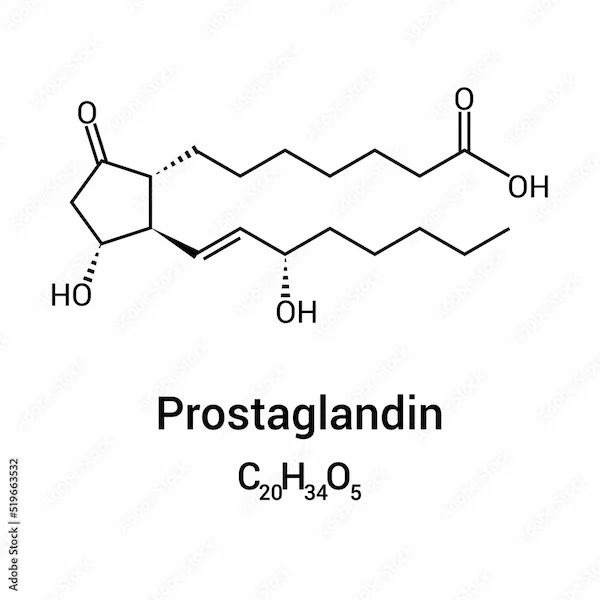How To Reduce Prolactin?
Learn how to reduce prolactin levels naturally with effective lifestyle changes, diet tips, stress management, and when to seek medical advice. Book tests and consultations easily on Apollo 24|7.

Written by Dr.Sonia Bhatt
Last updated on 13th Jan, 2026

Introduction
Prolactin is a hormone produced by the pituitary gland, primarily responsible for milk production in breastfeeding women. However, high prolactin levels, called hyperprolactinemia, can occur in both men and women, leading to various health concerns. If you’ve been diagnosed with elevated prolactin or suspect you might have it, this article will help you understand the condition and learn natural ways to manage it.
What Is Prolactin and Why Does It Matter?
Prolactin plays a crucial role in reproductive health, particularly in women during and after pregnancy. However, when levels rise abnormally, it can cause:
Irregular or missed periods in women
Breast milk production (galactorrhea) in non-pregnant women or men
Low libido and erectile dysfunction in men
Infertility in both genders
Bone loss (osteoporosis) due to hormonal imbalance
Several factors can contribute to elevated prolactin levels:
1. Pregnancy & Breastfeeding – Naturally high during these phases.
2. Pituitary Tumours (Prolactinomas) – Non-cancerous growths that increase prolactin.
3. Medications – Antidepressants, antipsychotics, and blood pressure drugs.
4. Chronic Stress – Affects hormone balance.
5. Hypothyroidism – Underactive thyroid can raise prolactin.
6. Lifestyle Factors – Poor sleep, excessive alcohol, and high-fat diets.
Consult Top Doctors for Your Symptoms
How to Lower Prolactin Naturally?
If your high prolactin isn’t due to a serious medical condition like a tumour, these natural approaches may help:
1. Manage Stress Effectively
Chronic stress increases cortisol, which can disrupt prolactin levels. Try:
Meditation & deep breathing exercises
Yoga or Tai Chi
Adequate sleep (7-9 hours per night)
2. Eat a Balanced, Prolactin-Friendly Diet
Certain foods help regulate hormones:
Vitamin B6-rich foods like bananas, chickpeas, potatoes
Zinc-rich foods including nuts, seeds, seafood
High-fibre foods such as whole grains, vegetables
Avoid processed foods and excessive dairy
3. Exercise Regularly
Moderate exercise helps balance hormones. Aim for:
30 minutes of walking, cycling, or swimming daily
Strength training 2-3 times a week
4. Herbal Remedies (Consult a Doctor First)
Some herbs may help, but always check with a healthcare provider:
Vitex (Chasteberry) – Known to regulate prolactin.
Maca Root – Supports hormonal balance.
Ashwagandha – Reduces stress-related hormone spikes.
5. Limit Alcohol & Caffeine
Excessive alcohol and caffeine can disrupt hormone levels.
6. Check Thyroid Function
If you have symptoms of hypothyroidism (fatigue, weight gain, hair loss), get tested. Proper thyroid treatment can normalise prolactin.
When to See a Doctor?
While lifestyle changes can help, medical intervention is necessary if:
You have persistent symptoms like irregular periods or milk discharge
Blood tests show very high prolactin levels
An MRI reveals a pituitary tumour (prolactinoma)
If you’re experiencing symptoms, consider booking a test through Apollo 24|7 for quick and accurate results. Doctors may prescribe medications like cabergoline or bromocriptine to lower prolactin levels effectively.
Get Your Health Assessed
Final Thoughts
Managing high prolactin levels requires a proactive and informed approach. With the right combination of healthy lifestyle habits, stress management techniques, and medical support when necessary, you can restore hormonal balance and improve your quality of life. If you notice symptoms of an imbalance, do not hesitate to consult a doctor for proper diagnosis and treatment.
Consult Top Endocrinologists
Consult Top Doctors for Your Symptoms

Dr. Anand Ravi
General Physician
2 Years • MBBS
Bengaluru
PRESTIGE SHANTHINIKETAN - SOCIETY CLINIC, Bengaluru

Dr. E Prabhakar Sastry
General Physician/ Internal Medicine Specialist
40 Years • MD(Internal Medicine)
Manikonda Jagir
Apollo Clinic, Manikonda, Manikonda Jagir
(175+ Patients)

Dr. Arunava Ghosh
General Physician/ Internal Medicine Specialist
10 Years • MBBS,MD(GENL.MED.),DM(ENDOCRINOLOGY)
Kolkata
VDC Clinic, Kolkata
Aditya Singh
Endocrinologist
8 Years • MBBS
Bengaluru
Apollo One Electronic City, Bengaluru

Dr. Shruthi B
Endocrinologist
20 Years • MBBS,MD ( GEN MED) DM (ENDOCRIONOLOGY)
Bengaluru
Apollo Clinic, JP nagar, Bengaluru
Consult Top Endocrinologists

Dr. Anand Ravi
General Physician
2 Years • MBBS
Bengaluru
PRESTIGE SHANTHINIKETAN - SOCIETY CLINIC, Bengaluru

Dr. E Prabhakar Sastry
General Physician/ Internal Medicine Specialist
40 Years • MD(Internal Medicine)
Manikonda Jagir
Apollo Clinic, Manikonda, Manikonda Jagir
(175+ Patients)

Dr. Arunava Ghosh
General Physician/ Internal Medicine Specialist
10 Years • MBBS,MD(GENL.MED.),DM(ENDOCRINOLOGY)
Kolkata
VDC Clinic, Kolkata
Aditya Singh
Endocrinologist
8 Years • MBBS
Bengaluru
Apollo One Electronic City, Bengaluru

Dr. Shruthi B
Endocrinologist
20 Years • MBBS,MD ( GEN MED) DM (ENDOCRIONOLOGY)
Bengaluru
Apollo Clinic, JP nagar, Bengaluru


